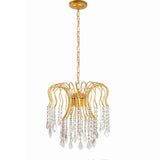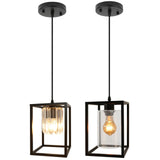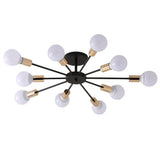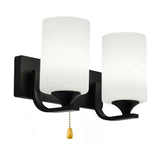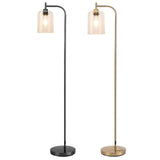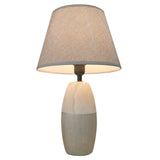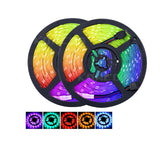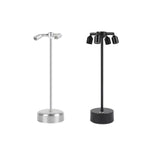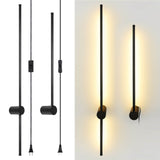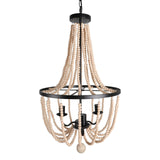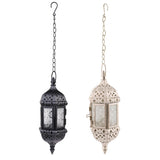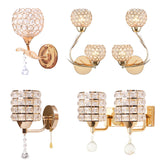Common Types of Interior Lighting and Light Fixtures
Lighting is an essential element of the home interior as it will complement other decor and can even have a significant impact on the look of the space and how you feel in the room.
However, it’s not about simply installing some lights here or placing some lamps there. Different rooms and situations require different illumination requirements, so choosing proper lighting fixtures based on your needs is necessary. Here is a guide to four types of basic interior lighting and the corresponding fixtures, which may help you find the perfect light fixture for each of your rooms.
1. General/Ambient Lighting
General lighting, also known as ambient lighting, is the most necessary lighting for a room. It provides an adequately bright, overall illumination for the space, allowing you to see comfortably and walk around safely.
Meanwhile, ambient lighting can also be connected to a dimming system that enables you to control the light levels according to the change of occasions. In such a case, ambient can serve as a fixture to set the tone of the space.
Common fixtures that offer general, ambient lighting are flush mount ceiling lights, chandeliers, pendants, recessed lighting fixtures, track lighting fixtures, wall sconces, and floor lamps.
2. Task Lighting
As the name implies, task lighting is any light source used to help you complete tasks such as reading, cooking, crafts, studying, work, and hobbies. Usually, an efficient task light is designed with brighter lighting without glare and shadows to provide enough brightness. And it’s often paired with ambient lighting to prevent eyestrain resulting from the sharp contrast between light and dark.
There are a variety of task lighting fixtures available, and you need to choose depending on your activity needs, the environment, and the sensitiveness of your eyes.
Light sources that create task lighting are table lamps, portable lamps, track lights, undercabinet fixtures, and pendant lighting fixtures.
3. Accent Lighting
Accent lighting is specifically intended to create a focal point by highlighting any particular feature in the space. It is added to emphasize your favorite piece and enhance the decorating of the room. For instance, you can use accent lighting to spotlight the indoor plants, artwork on the wall, or a sculpture at the corner.
Accent lighting, by nature, needs higher wattage to provide at least three times as much light on the target objects. So, it can naturally draw your attention to the object wherever it stands.
Fixtures used for accent lighting are track lights, wall sconces, strip lights, and directional recessed lights.
4. Decorative Statement Lighting
As you can guess from the name, decorative statement lighting is a kind of lighting source mainly made for decorative purposes. Decorative lighting fixtures are often unique in design, shape, color, size and lighting effect.
They are not necessarily intended to illuminate other objects in the room because they can serve as a featured decor anywhere it suits, whether it’s on or off. Like the 3D moon lamp below, it stands as an interesting art when turned off and gives off delightful, dreamlike lighting like a real moon.
Types of decorative statement lighting fixtures are chandeliers, table and floor lamps, wall sconces, pendants, and hanging lanterns.
Apparently, no one lighting fixture can provide all lighting needed for a room. Therefore, whether you are planning the lighting for your home, office, bar, or restaurant, consider your specific needs and the occasions to choose the best fixtures.

